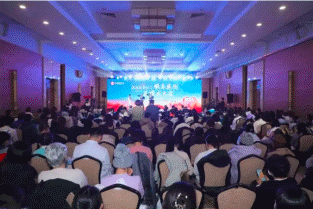
On December 12, the Beijing Competition on Cases and Models of Medical Social Work Service was held with great enthusiasm. The competition was sponsored by the Beijing Municipal Health Commission and hosted by the Professional Committee on Medical Social Work of the Beijing Hospital Association. A total of 20 medical institutions from the health system of Beijing have entered the final list.
The participating units displayed rich content, covering a wide range of fields, involving multiple patient groups such as cancer patients, disabled patients, emergency patients, and chronic disease patients. They were embedded in multiple processes of "before, during and after" medical care, and took care of multiple psychological and social aspects of patients. It fully demonstrated the bridges that medical social workers built between doctors and patients, and highlighted the humanistic care and professional depth of medical social work.
The medical social work service cases of the 20 hospitals selected this time were divided into 10 model exploration cases and 10 service cases. The competition was divided into two parts, namely the centralized display and on-site random question answering. After fierce competition, 2 first prizes, 8 second prizes and 10 third prizes were selected. The audience voted to select the 5 outstanding poster award units and 1 most popular unit.
Ye Xiaomin, member of the Party Committee and Deputy Director of the Beijing Municipal Health Commission, Xing Guili, Director and first-level researcher of the Social Work Team Construction Division (Volunteer and Social Mobilization Division) of the Civil Affairs Bureau of the Social Work Committee of the Beijing Municipal Committee, Zhou Bing, Vice President of the China Association of Social Workers, Gao Xiaojun, President of Beijing Health Management Association, Wang Zengjuan, Secretary-general of Beijing Han Hong Love Charity Foundation, Shi Bainian, Director and professor of the Graduate Department of China Youth University of Political Science, Wang Kexia, Chairman of the Medical Social Work Professional Committee of Beijing Hospital Association, Lin Xia, professor of the Department of Public Administration of Beijing City University, and other leaders and expert judges attended the event.
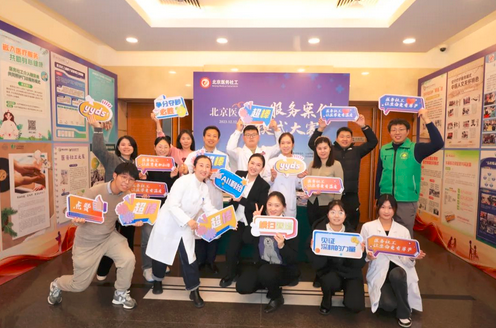
Professional services
Bring the warmth of medicine to patients
Accompanied by cheerful music, the medical social worker team of Peking University Stomatology Hospital showed the audience the recovery process of Yu, a 5-year-old child with third-degree cleft lip and palate.
"Hello, I am Yao, a medical social worker at the hospital. Please let me know if you need any help." On the first day Yu was admitted to the hospital, Yao, a medical social worker, came to the mother and child in time to help them familiarize themselves with the admission and treatment procedures, and guided Yu’s mother filled out a questionnaire to gain a comprehensive understanding of the child's and parents' psychological status, family care situation, social support system, etc., to formulate an assistance plan for Yu's mother and child. Yu and her mother were no longer afraid and nervous, and the operation went smoothly.
According to reports, Peking University Stomatological Hospital treats more than 1,500 patients with cleft lip and palate every year. Through an inter-professional team composed of the Youth League committees of the Municipal Party Committee Office and Municipal Government Office, medical social workers, and clinical nurses, it focuses on the psychological status and social needs of children and parents, and explored the social work model of treatment for families with children with cleft lip and palate.

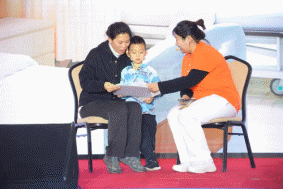
Zhu Mingqi, a medical social worker at Beijing Tongren Hospital affiliated to Capital Medical University, used a combination form of sand painting and sitcom to impress the audience. "Let children face disease and treatment bravely and actively" is the goal and motivation of Zhu Mingqi's work.
Lele, an 8-year-old child with cancer, is always depressed and watches cartoons on his mobile phone alone. Zhu Mingqi successfully diverted Lele's attention through the cartoon character mini-game and asked Lele to make handicrafts for himself. After several activities and guidance, Lele became more and more interested in socializing with children of the same age. He also took the initiative to chat and interact with doctors and mothers, and the treatment effect was greatly improved.
Zhu Mingqi introduced,"the stress-reducing painting, picture book performance, self-sharing and other activities can help children build a peer support network, allowing them to grow together in an atmosphere of mutual support and encouragement. So far, the peer interaction support group has be held successfully for 78 sessions, with 256 direct participants."
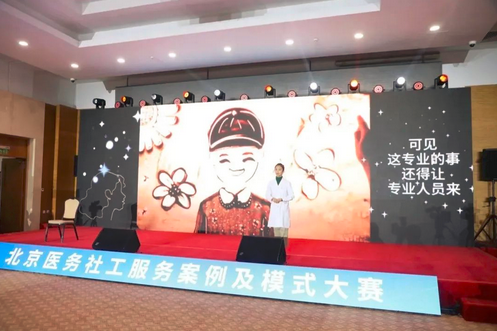
If death is unavoidable, how do you say goodbye to the world? The medical social work team of Peking University Shougang Hospital told us the story of Uncle Wang’s Dignity Therapy.
Uncle Wang is a patient with terminal pancreatic cancer. On the one hand, he is reluctant to leave his relatives, and on the other hand, he is suffering from the torture of dying. Uncle Wang was in great pain.
"Uncle Wang, from now on I will accompany you to sort out your life experiences, listen to your insights on life, and then write these stories and feelings into a book and give it to you. Is it okay?" asked social worker Yan.
"Sure. So my granddaughter will never forget me as her grandfather." Uncle Wang accepted the dignity therapy and recalled the highlight moments of his life from different dimensions.
Soon after, Uncle Wang's "Dignity Document" was completed. He was very happy and felt that his life was very meaningful. The "Dignity Document" was also unanimously recognized by the family members.
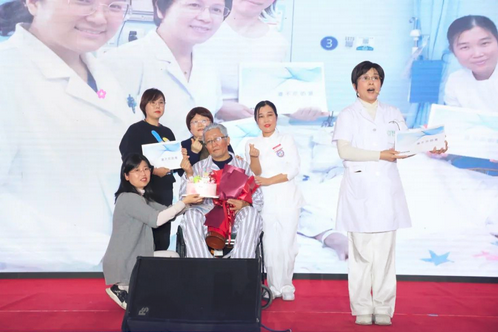
Embedded in diagnosis and treatment process
Specialized medical social workers provide comprehensive services to patients
Since 2020, the Beijing Municipal Health Commission has carried out diversified training of medical social workers for three consecutive years, promoted resident projects of medical social workers for two consecutive years, and explored a number of medical social work service models.
At the competition site, a representative of Beijing Tsinghua Chang Gung Memorial Hospital told the story of the "four-dimensional multi-directional" medical social work service model for organ transplantation based on the story of a child with congenital hypercholesterolemia. "Organ transplantation is difficult to treat, with a long treatment cycle. The patients and their families always encounter many difficulties, so they are the key service target of medical social workers." said Zhang, a medical social worker.
Yu told medical social worker Zhang, "Over the years, my family has spent all their savings to treat me. I know that this surgery will cost a lot of money, and my parents will have to borrow money again."
"It's okay, Yu. Let's find a solution together." The medical social worker used a scale to evaluate the financial situation of the service recipients. The medical team helped the mother and daughter apply for the special support fund of the hospital for children's liver transplantation to provide certain financial and emotional support for Yu's postoperative recovery.
According to reports, the medical social worker specializing in organ transplantation at Tsinghua Chang Gung Memorial Hospital can provide patients with professional services covering four dimensions (pre-disease intervention, disease treatment, rehabilitation expansion, and humanistic care) and many recipients (transplant recipients and families, medical teams, and the public) .
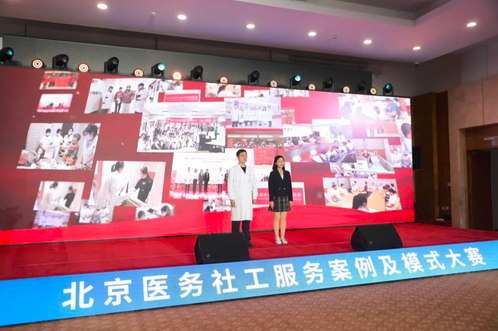

Stabilization of the condition does not mean true recovery. The representative from Fengtai District Rehabilitation Hospital in Beijing introduced the "1+1+1" service model of "full-cycle management + multidisciplinary joint intervention + personalized services" based on the story of stroke patient Qi.
During the recovery process, Qi's mood was extremely unstable. In order to mobilize Qi's enthusiasm for recovery, the medical social worker held a patient meeting during the Mid-Autumn Festival. At the birthday party on the National Day, Qi not only came, but also sang a song called "Sparrow". After that, Qi said: "Even if it is a little sparrow, there will be a bright future. Let's not give up. We will definitely recover!" With the joint efforts of the rehabilitation team and its medical social workers, "Qi could take care of himself basically recovered."
In
the "1+1+1" service model of Beijing Fengtai Rehabilitation
Hospital, "the medical social workers overcame obstacles in the
recovery process, stimulated the motivation of recovering patients,
and created the miracle of life."

At Peking University Third Hospital, the exploration of the service model for emergency medical social work has enabled the medical social work service form to be visualized, the service process standardized, and the service content specialized, thereby improving the standardization, operability, and replicability of emergency medical social work services.
There are a faster diagnosis and treatment pace, more critically ill patients, and tighter medical resources at the emergency department. Faced with various problems and needs of patients, the medical social workers, with the guidance of the supply and demand matching model, made a list of the services they can provide, into a patient version and a clinical version, allowing both doctors and nurses to choose their own service through a clear list.
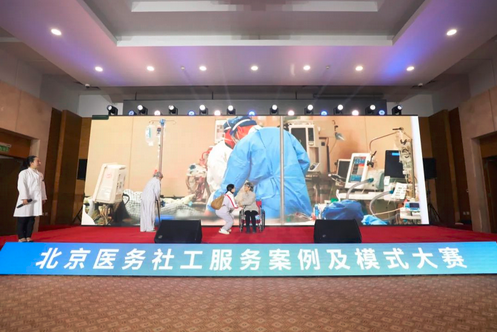
Wu Ningbo, a medical social worker at Yujiawu Community Health Service Center in Tongzhou District, told us a beautiful "misunderstanding" in the form of a talk show. It was this "misunderstanding" that made her become a "caring person" for many patients with chronic diseases.
A few years ago, the concept of family doctor had just become popular. Uncle Wang, who suffered from severe hypertension, mistakenly thought that signing a contract with a family doctor meant that that the doctor would go to his home for consultation. The doctor hadn't explained it clearly to Uncle Wang yet, and the long lecture made the patients queuing outside very anxious.
Wu Ningbo understood the cause and effect, and immediately took Uncle Wang out of the clinic, patiently explained to him what a family doctor contract was, and led him to conduct a detailed physical assessment. "I recommend you choose the third medical team. The doctors in the team are all experts in hypertension and are more suitable for your health condition."
Since then, Wu Ningbo has started working as a member of family doctor team. Medical social workers have their own professional methods, to gradually open up the patients' hearts. They use non-drug treatment methods to relieve their emotions, and then manage chronic diseases more actively.
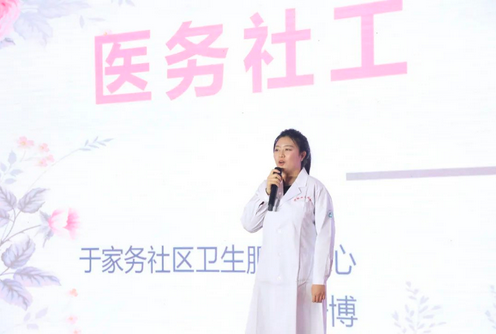

Dongfeng Community Health Service Center has set up a special joint care clinic for diabetes. A care team composed of traditional Chinese medicine practitioners, general practitioners, caregivers, and social workers provides closed-loop management of the entire chronic disease intervention process. Medical social workers hold meetings for a group of diabetic patients with poor compliance, organizing activities such as ice-breaking games, complaints conferences, and knowledge popularization.
Patients with diabetes spoke freely, expressing their views on disease management and their unhappy experiences during medical treatment. The social workers collected their opinions and gave them to the doctors so that they could carry out targeted treatment.


In recent years, with the advancement of hierarchical diagnosis and treatment, hospice care work has gradually extended from tertiary hospitals to communities and families. In Puhuangyu Community Health Service Center, medical social workers are an important member of the MDT multidisciplinary hospice team, which deeply explores the comprehensive service model of "home-outpatient-inpatient" hospice care at the community level and forms a set of service standards.
At
the event, the community medical social workers demonstrated the
important role they have played in the hospice care. They link more
social resources and family resources, allowing patients to return to
their daily life environment and social relationships. According to
reports, in the past three years, Puhuangyu Community Health Service
Center has provided home hospice care services to 171 people,
provided hospice care outpatient services to 2,100 people, and
hospitalized 172 people.

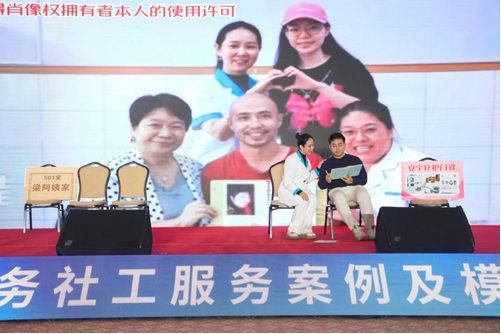
Collaboration to promote the high-quality development of medical social work
Ye Xiaomin, Deputy Director of the Beijing Municipal Health Commission, said that as one of the earliest areas to carry out medical social work, Beijing has achieved initial results in recent years. The development system has been gradually built, the development mechanism has become increasingly complete, a talent echelon has been initially formed, and social awareness degree continues to increase. As of now, there are 101 medical and health institutions with 306 workers carrying out medical social work in Beijing.
In the next step, the Beijing Municipal Health Commission will work together with all sectors of society to jointly promote the high-quality development of medical social work. First, government departments jointly promote and provide a strong institutional and policy environment for the development of medical social work. The second is the integrated development of medical institutions. It is necessary to integrate medical social work into various tasks such as improving medical services, building humanities departments, hierarchical diagnosis and treatment, contracting family doctors, chronic disease management, and integrating medical and nursing care. Third, all sectors of society must work together. Medical social work requires extensive participation from all sectors of society. The development of medical social workers provides talent guarantee, professional support and public welfare force. Fourth, the publicity atmosphere is continuously created to enhance the understanding of medical social workers by medical staff and the public.
